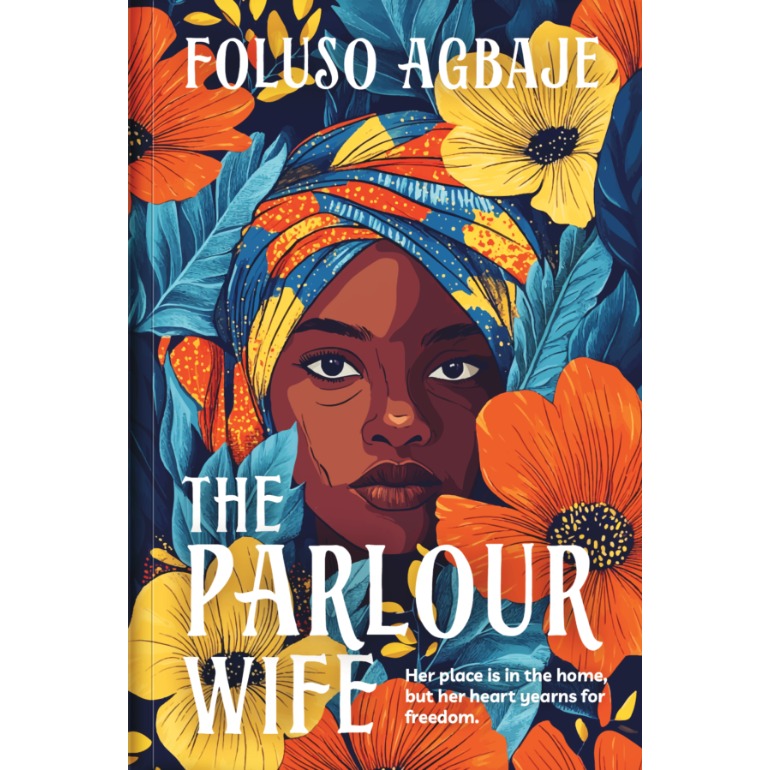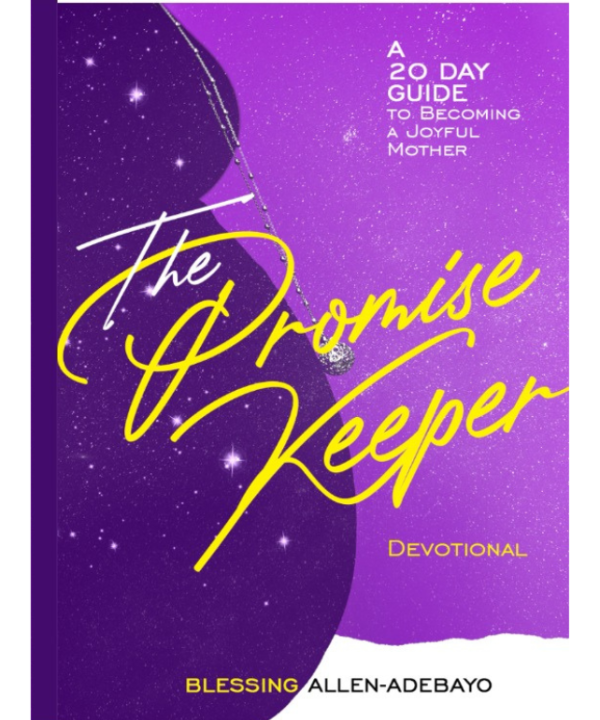-
×
 Giving: Purpose Is the New Currency
1 × ₦6,000.00
Giving: Purpose Is the New Currency
1 × ₦6,000.00 -
×
 The Power of Now: A Guide to Spiritual Enlightenment
1 × ₦16,500.00
The Power of Now: A Guide to Spiritual Enlightenment
1 × ₦16,500.00 -
×
 A Naija Parents' Guide To Having The Talk
1 × ₦1,000.00
A Naija Parents' Guide To Having The Talk
1 × ₦1,000.00 -
×
 Emotional Insurance
1 × ₦3,500.00
Emotional Insurance
1 × ₦3,500.00 -
×
 The Promise Keeper Devotional
1 × ₦5,000.00
The Promise Keeper Devotional
1 × ₦5,000.00
Book Reviews
Review of The Parlour Wife by Foluso Agbaje
Like Parlour dogs that stay restricted in their owners’ home and are easy to handle, parlour
wives are married for their youth, naivety and beauty by randy old men. This story explores a
few years in the life of a young adult girl who was forced into an arranged marriage to save
herself and her family.
Kehinde’s plans for her future are worlds apart from her parents’. The letter to discuss her
employment from the editor of a prestigious paper is proof that her family doesn’t need Mr
Ogunjobi’s gifts and favours to survive. However, her parents’ insistence and the catastrophic
blow she was dealt by life soon made her an unwilling third wife at only eighteen years.
She is thrown into the chaotic notion of sharing a husband and a home whilst trying to pick
the pieces of her shattered dreams.
When Kehinde is beaten into accepting her fate as a store owner in the market- a life she
wants no part of, she makes the most of it by joining the Market Union of Women and
offering tangible services to help the women’s cause in the heat of a ravishing war.

This story evokes strong conversations about feminism and a rigged patriarchal system
against women. Mr Ogunjobi’s wives worship the ground he works on even though he was a
horrible father and husband, the women saw themselves as rivals- each of them competing
for their husband’s attention- and would do anything to sabotage the chances of the other
wife. This story lays strong emphasis on how women are taught to romanticize submission,
and how the concept means two different things to both men and women.
Unlike her twin who before the war started plans to enlist in the Air Force and fight for
England despite their father’s disapproval and their mother’s tears, Kehinde is unable to rebel
against the family’s decision to marry Ogunjobi and spent the entirety of the story in deep
regrets and fears until she met Emeka.
This author transports her audience back to colonial Nigeria and through a war imposed on
them by England, their parent country.
Despite her position as the wife of a notorious man, Kehinde is reckless and falls completely
and hopelessly in love with Emeka- a young writer whose attention ignites warmth in her
belly despite knowing the dangers of her betrayal.
Like Shoneyin in her book “The Secret Lives of Baba Segi’s Wives” and Emecheta in
Kehinde, this author captured without sparing feelings, the life of an average Nigerian
woman- burdened by patriarchy, abuse and the guilt of living on their own terms.
Kehinde in “Parlour Wife” is thrown into the politics of a polygamous home while harbouring
a strong dislike for the husband she is married to.
From top to bottom, this story warmed me. I went quickly from learning deep lessons in
history to feeling sad and angry about Kehinde’s predicament. Foluso Agbaje’s writing is
simple yet presented in an old-fashioned way that doesn’t put one off, I think. The author
used Kehinde’s POV to tell a story that would be appreciated for generations.
Passing her themes across without imposing on the overall story and using a descriptive
personal style that makes you feel very close to the main character, the writer impressed, as
well as impacted me.
Set between 1939 and 1945, “Parlour Wife” depicts the lifestyle of Nigerians, with the author
painstakingly describing structures, systems and cultures that create an intriguing 3D
experience.
While this story had a melancholy tone to it, this author tried to provide snippets of mirth
and humour by introducing characters like Ama- funny and smart- and wove a love story in
between the pages of this chaotic war story that ended in a happy ever after.
Although it took time to really acclimatize with this book because I doubted the
recommendations of my Bookclub friend, I am happy to have experienced this story.
About the Writer: Nneka is an avid reader with a knack for ranting about books she has read.
She is also a beta reader and developmental editor passionate about helping writers write their dream stories. When she is not doing book things, you’d catch her injecting her soul with every track by Dwin The Stoic.


 Giving: Purpose Is the New Currency
Giving: Purpose Is the New Currency  The Power of Now: A Guide to Spiritual Enlightenment
The Power of Now: A Guide to Spiritual Enlightenment  A Naija Parents' Guide To Having The Talk
A Naija Parents' Guide To Having The Talk  Emotional Insurance
Emotional Insurance  The Promise Keeper Devotional
The Promise Keeper Devotional